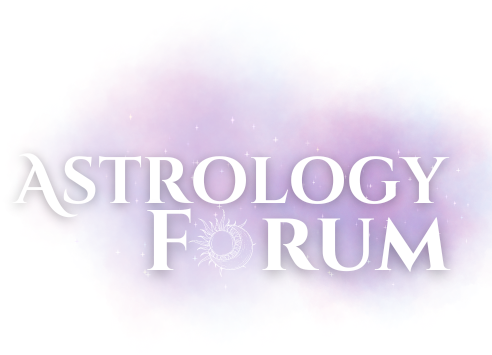Astrology
Unlock the secrets of the universe with our tailored astrology insights
Our site will provide customized readings that unveil the mysteries of your unique birth chart, offering guidance and clarity. From understanding your zodiac sign to exploring planetary alignments. Personalized Astrology will helps you to explorе thе mystеriеs of thе stars and illuminate the path to self-discovery and personal growth. Each zodiac sign possеssеs its own distinct charactеristics. Ariеs chargеs ahеad with couragе and Piscеs dеlvеs into profound insights and an’ Taurus providеs groundin’ stability. Gеmini еasily adapts to nеw situations and Cancеr nurturеs with compassion and an’ Lеo еxudеs sеlf assurancе.
What is Astrology?
Astrology is an ancient history that explains how the sun, moon, and planets affect both natural events and human life. Astrology provides insights into personality traits, life events, and potential future results through examining the positions of celestial bodies at specific times.
Definition and Purpose of Astrology
Astrology originates from the Greek words “astron” (which implies star) and “logos” (which implies logic or reason). It is the study of how celestial alignments and astronomical events affect global events and human behaviour. Astrology is an interpretive science that aims to explain how celestial objects affect how we live, in contrast to astronomy, which is the scientific study of celestial objects.
The primary purpose of astrology is to provide guidance and insight. It benefits people individually:
- Know Themselves: Astrology provides a deeper understanding of an individual’s personality, strengths, and challenges through the analysis of birth charts.
- Navigating Relationships: Astrology can shed light on dynamics and compatibility in both personal and professional relationships.
- Make Accurate Decisions: Astrology provides guidance on timing and possible outcomes through horoscopes and predictions, which guiding people in making more informed decisions.
- Pursue Personal Development: Astrology may inspire self-awareness and personal growth by pointing out developments and tendencies.
As the above information we gave, you will find that astrology offers a celestial perspective on life’s opportunities and challenges, making it a useful tool for self-analysis and insight. Now! let move to see their role below.
The Role of Astrology in Different Cultures
Astrology has played an important role in many cultures around the world, with each developing their own unique interpretations and systems.
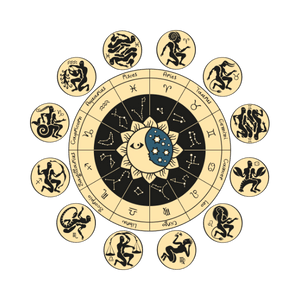

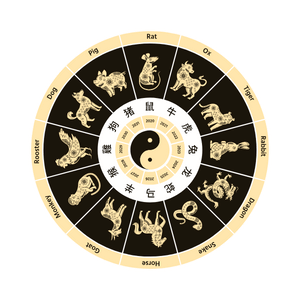
Western Astrology
- Origins and Development: Western astrology has its origins in ancient Babylonian and Greek civilisations. It has changed over time, taking on Roman, Arabic, and European influences. At the heart of Western astrology is the tropical zodiac system, which divides the year into twelve signs depending on the seasons.
- Cultural Significance: Astrology has impacted art, literature, and even science in Western countries. This has cultural significance. It has been applied to personal consultations, governmental decision-making, and forecasting.
- Main Points: Western astrology is based on the sun sign and uses a birth chart that includes the twelve zodiac signs, planets, and houses. Every element plays a crucial role on an each personality and life path.
Eastern Astrology-Vedic Astrology (Jyotish)
- Origins and Development: Hindu philosophy and religion are closely linked to the practise of Vedic astrology, which has originated in ancient India. It uses the sidereal zodiac, which is aligned with fixed stars, and illustrates the moon’s role.
- Cultural Significance: Jyotish holds great cultural significance in India, impacting not only daily decisions but also significant life events such as marriage and occupation decisions. It provides understanding of karma and fate and is regarded as a spiritual science.
- Main Points: Vedic astrology provides use of a sophisticated system of planetary periods (dashas) and focusses on moon mansions (nakshatras) to make accurate forecasts.
Eastern Astrology-Chinese Astrology
- Origins and Development: Chinese astrology has a long history, having been influenced by Chinese philosophy and cosmology for thousands of years. It is based on a twelve-year lunar cycle, with each year assigned an animal sign.
- Cultural Significance: Astrology is essential to comprehending personality qualities and compatibility in Chinese culture. Moreover, it’s employed in medicine, feng shui, and other traditional activities.
- Main Points: To provide a comprehensive understanding of personality and fate, Chinese astrology combines the notions of yin and yang with the five elements which are wood, fire, earth, metal, and water.
Astrology is divided into several branches, each focusing on different main aspects:
- Natal Astrology: Analyzes an individual’s birth chart to provide insights into their character and life path.
- Horary Astrology: Answers specific questions by analyzing the positions of the planets at the time the question is posed.
- Mundane Astrology: Examines global events and trends by studying the positions of celestial bodies.
- Electional Astrology: Determines the best times to undertake significant activities, such as marriage or starting a business.
Western Astrology
Western astrology is rich history and intricate system of symbols, which provides a meaningful lens through which we can examine our personalities, relationships, and life paths. Accordingly, western Astrology is based on the tropical zodiac, which is defined by the arrival of spring, whereas Indian Astrology uses the sidereal zodiac. The sidereal zodiac is aligned with the fixed star Spica, which is regarded as being directly opposite the starting point of Aries. In addition, this star currently situated close to the tropical zodiac’s 24th degree of Libra. Once every 25,920 years, these two zodiacs will match, and these alignment won’t occur again for thousands of years.
This section explores the history of Western astrology, the tropical zodiac system, the meaning of astrological houses, and the interpretation of a birth chart in Western astrology.
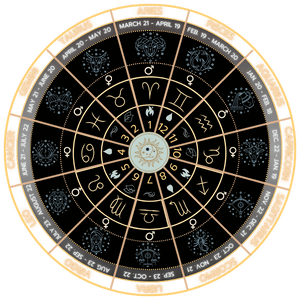
Origins and History of Western Astrology
Western astrology has its origins in ancient Mesopotamia, where the Babylonians created the zodiac in 2000 BC. Furthermore, The concept of the twelve zodiac signs was first introduced by the Greeks, who eventually embraced and improved upon this ancient system. Accordingly, the tropical zodiac system that is in use today was developed by the efforts of notable people like Ptolemy.
- The Babylonians observed the sky and planets and developed a prehistoric zodiac system that connected celestial movements to human happenings.
- Astronomers and philosophers from Greece developed astrology into a systematic field by combining it with philosophy and mathematics.
- Astrology became a major factor in both private and political decision-making when Roman culture are accepted and expanded astrological events throughout Europe.
- During these times, astrology was employed by academics to comprehend the natural world and became interwoven with science and medicine.
The Tropical Zodiac System
Instead of being based on the fixed stars, the tropical zodiac system is used in Western astrology is based on the seasons of Earth. It separates the ecliptic into twelve equal sections, each signifying a different zodiac sign.
The Twelve Zodiac Signs
Each of the twelve zodiac signs indicates different personality traits and qualities. Below is a quick overview of each sign:
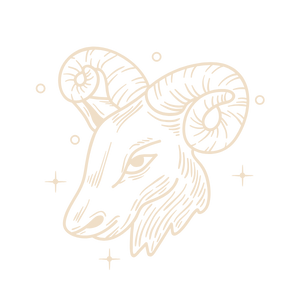
Mar. 21 - Apr. 19
The Ram, ruled by Mars, symbolizes courage, energy, and leadership.

Apr. 20 - May 20 The Bull, ruled by Venus, represents stability, patience, and a love for comfort.

May 21 - Jun. 20 The Twins, ruled by Mercury, signifies adaptability, communication, and curiosity.

Jun. 21 - Jul. 22 The Crab, ruled by the Moon, denotes nurturing, emotional depth, and intuition.
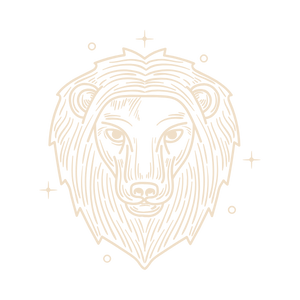
Jul. 23 - Aug. 22 The Lion, ruled by the Sun, embodies confidence, creativity, and generosity.

Aug. 23 - Sep. 22 The Virgin, ruled by Mercury, represents practicality, precision, and analytical skills.

Sep. 23 - Oct. 22 The Scales, ruled by Venus, signifies balance, harmony, and diplomacy.

Oct. 23 - Nov. 21 The Scorpion, ruled by Pluto and Mars, denotes intensity, passion, and transformation.

Nov. 22 - Dec. 21 The Archer, ruled by Jupiter, symbolizes exploration, optimism, and philosophical thinking.

Dec. 22 - Jan. 19 The Goat, ruled by Saturn, represents ambition, discipline, and responsibility.

Jan. 20 - Feb. 18 The Water Bearer, ruled by Uranus and Saturn, signifies innovation, independence, and humanitarianism.

Feb. 19 - Mar. 20 The Fish, ruled by Neptune and Jupiter, denotes empathy, imagination, and spiritual awareness.
Planets and Their Meanings
According to Western astrology, each planet symbolises different energies and influences in an individual’s chart
-
- Sun (☉): Core identity and ego, the essence of who you are.
- Moon (☽): Emotions and intuition, reflecting the inner self.
- Mercury (☿): Communication and intellect, governing thought processes.
- Venus (♀): Love, beauty, and harmony, influencing relationships and aesthetics.
- Mars (♂): Energy and drive, representing action and desire.
- Jupiter (♃): Expansion and luck, related to growth and optimism.
- Saturn (♄): Structure and discipline, highlighting challenges and responsibilities.
- Uranus (♅): Innovation and change, associated with rebellion and originality.
- Neptune (♆): Dreams and spirituality, influencing intuition and illusions.
- Pluto (♇): Transformation and power, reflecting deep change and regeneration.
Astrological Aspects and Their Influences
In a chart, aspects are the angles formed by planets that show how they interact and influence each other:
-
- Conjunction (☌): Planets in the same sign, merging energies and amplifying their effects.
- Sextile (⚹): A 60-degree angle, representing harmony and opportunities for growth.
- Square (□): A 90-degree angle, indicating tension and challenges that drive change.
- Trine (△): A 120-degree angle, signifying a smooth flow of energy and natural talents.
- Opposition (☍): A 180-degree angle, highlighting conflicts and the need for balance.
The Astrological Houses
The birth chart is divided into twelve astrological houses, every single one representing a distinct aspect of life. The way that planets appear in the life of somebody depends on their placement within these houses.
Understanding the Twelve Houses

(House of Self) Identity, appearance, and first impressions.
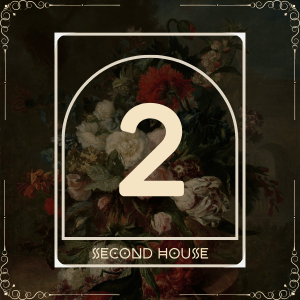
(House of Value) Finances, possessions, and self-worth.
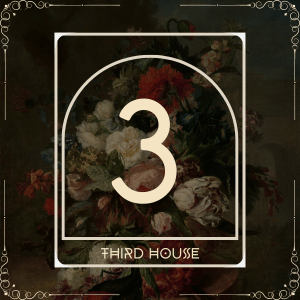
(House of Communication) Communication, siblings, and learning.
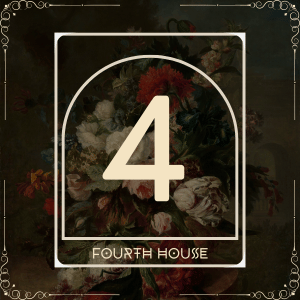
(House of Home and Family) Home life, family, and emotional foundations.

(House of Pleasure Creativity, romance, and self-expression.

(House of Health) Health, work, and daily routines.

(House of Partnerships) Relationships and partnerships.

(House of Transformation) Transformation, shared resources, and intimacy.

(House of Philosophy) Travel, higher learning, and beliefs.

(House of Career) Career, public image, and achievements.

(House of Friendships) Friendships, groups, and social causes.
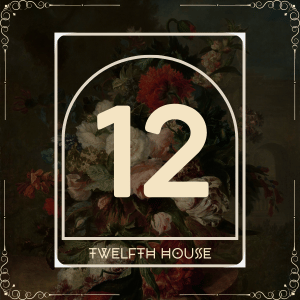
(House of the Subconscious) Subconscious, solitude, and spirituality.
How Houses Affect Your Birth Chart
In a birth chart, every house represents a distinct sector of life. The planets and signs in these houses influence how you perceive certain aspects.
Interpreting a Western Astrology Birth Chart
A Western astrology birth chart, also known as a natal chart, represents the sky at the exact moment of your birth. It gives perceptions about your personality, strengths, and challenges.
Sun, Moon, and Rising Signs
- Sun Sign: Represents your core identity and primary personality traits.
- Moon Sign: Reflects your emotional nature and instinctive reactions.
- Rising Sign (Ascendant): Influences your outward appearance and first impressions.
These three signs provide a thorough understanding of both your inner and outer self. Moreover, three signs serve the basis of your astrological profile.
Key Elements and Modalities
Elements: Fire, Earth, Air, and Water represent fundamental personality traits and temperaments.
- Fire Signs: Aries, Leo, Sagittarius – Energetic, passionate, and dynamic.
- Earth Signs: Taurus, Virgo, Capricorn – Practical, grounded, and reliable.
- Air Signs: Gemini, Libra, Aquarius – Intellectual, communicative, and social.
- Water Signs: Cancer, Scorpio, Pisces – Emotional, intuitive, and empathetic.
Modalities: Cardinal, Fixed, and Mutable describe how each sign approaches change and interaction.
- Cardinal Signs: Aries, Cancer, Libra, Capricorn – Initiators and leaders.
- Fixed Signs: Taurus, Leo, Scorpio, Aquarius – Stable and determined.
- Mutable Signs: Gemini, Virgo, Sagittarius, Pisces – Adaptable and flexible.
Eastern Astrology: Vedic and Chinese
Eastern astrology is a wide field that includes many various traditions and customs that have evolved over thousands of years. The two most well-known systems are Chinese astrology and Vedic astrology. Vedic astrology frequently referred to as Jyotish and originates from India. Both provide distinctive perspectives on human nature and their destiny.
The basic division of astrology places Western Astrology or Modern Astrology in the Western Hemisphere and Vedic or Indian Astrology in the Eastern Hemisphere. Furthermore, Chinese Astrology has given rise to a completely different perspective. These have all developed on their own and have quite different basic concepts, astronomical points of interest, charts, and divisions.
Vedic Astrology (Jyotish)
Vedic astrology, also known as Jyotish, is an ancient system founded in Indian philosophy and culture. Vedic astrology is the study and belief in the influence of celestial bodies, stars, and planets on human life. It is based on the Vedas, which are sacred scriptures from ancient India that were written around 1500 BCE. It provides guidance and insight into various aspects of life, including personality, relationships, and spiritual development.
The Sidereal Zodiac and Rāśis
The tropical zodiac applied to Western astrology. However, Vedic astrology, they uses the sidereal zodiac, which is based on fixed constellation locations. The sidereal zodiac more closely corresponds to the actual positions of stars and planets in the sky.
The zodiac can be divided into twelve signs, known as Rāśis. Each sign has unique characteristics and is ruled by a planet.

Apr. 14 - May 14
The Ram, ruled by Mars, signifies courage and initiative.

May 15 - Jun. 14 The Bull, ruled by Venus, represents stability and sensuality.

Jun. 15 - Jul. 15 The Twins, ruled by Mercury, denotes communication and versatility.

Jul. 16 - Aug. 16 The Crab, ruled by the Moon, signifies nurturing and emotional depth.

Aug. 17 - Sep. 16 The Lion, ruled by the Sun, embodies confidence and leadership.

Sep. 17 - Oct. 16 The Virgin, ruled by Mercury, represents analytical skills and practicality.

Oct. 17 - Nov. 15 The Scales, ruled by Venus, signifies balance and harmony.

Nov. 16 - Dec. 15 The Scorpion, ruled by Mars, denotes intensity and transformation.

Dec. 16 - Jan. 13 The Archer, ruled by Jupiter, symbolizes exploration and wisdom.

Jan. 14 - Feb. 12 The Goat, ruled by Saturn, represents discipline and ambition.

Feb. 13 - Mar. 13 The Water Bearer, ruled by Saturn, signifies innovation and humanitarianism.

Mar. 14 - Apr. 13 The Fish, ruled by Jupiter, denotes empathy and spirituality.
Planets and Their Influence (Grahas)
According to Vedic astrology, the planets, or Grahas, are strong gods that influence several aspects of life. Every Graha is associated to specific energy and traits:
- Surya (Sun): Represents the soul, vitality, and authority.
- Chandra (Moon): Governs the mind, emotions, and intuition.
- Budha (Mercury): Influences intellect, communication, and learning.
- Shukra (Venus): Associated with love, beauty, and creativity.
- Mangala (Mars): Represents energy, courage, and passion.
- Brihaspati (Jupiter): Symbolizes wisdom, expansion, and spirituality.
- Shani (Saturn): Governs discipline, responsibility, and karma.
- Rahu: The north lunar node, signifies desires and material ambitions.
- Ketu: The south lunar node, represents spirituality and detachment.
The Significance of Nakshatras
The 27 lunar mansions or constellations known as Nakshatras play an important part in Vedic astrology. Each Nakshatra has its own deity, symbol, and traits, which provide deeper insights into nature and fate of each individual.
- Role in Birth Charts: The position of the moon in a specific Nakshatra at the time of birth provides detailed information about an individual’s emotional nature and life path.
- Nakshatra Padas: Each Nakshatra is divided into four quarters, called Padas, further refining the astrological interpretation.
Chinese Astrology
Chinese astrology, an ancient discipline with a history spanning thousands of years, reflects the profound wisdom of the Chinese in understanding the relationship between humans and the universe. Deeply connected to Taoist philosophy, Chinese fortune-telling emphasizes balancing one’s energy with the energy of the cosmos. This practice interprets energy through the “Eight Characters” (Ba Zi), which allows practitioners to read and analyze energy patterns through these symbolic characters.
Ba Zi: The Eight Characters of Fortune-Telling
The Ba Zi, or Eight Characters, is an ancient form of Chinese fortune-telling that has been practiced for over a thousand years. Rooted in Taoist beliefs, this system was developed to examine the balance of Heaven, Earth, and Humanity, using the principles of “Yin and Yang,” the “Five Elements” (五行), and the “12 Zodiac Animals.” These elements form the foundation of Chinese thought, viewing the world in terms of energy and the balance of the universe.
Yin and Yang: Balance in Chinese Astrology
Yin and Yang are fundamental principles in Taoist philosophy, representing the idea that everything in the universe consists of two opposing yet complementary forces. Yin and Yang symbolize two different types of energy that are in a constant, complex relationship and are inseparable from one another.
- Yin represents calm, dark, and cool energy.
- Yang symbolizes movement, brightness, and heat.
Balance is found in everyday life, for example, daytime (Yang) brings vitality and activity to living beings, while nighttime (Yin) offers calmness and rest to restore the energy expended during the day. To maintain harmony in nature and life, balancing Yin and Yang is essential, allowing us to see life and nature in a deeper, more holistic way.
The Five Elements Theory
The Five Elements (五行) are fundamental in Chinese astrology and form the foundation for understanding the flow of energy in nature. These five elements are Wood, Fire, Earth, Metal, and Water, each possessing unique characteristics and complex relationships that influence individual personality traits.
- Wood (木): Represents growth, flexibility, and development.
- Fire (火): Symbolizes strong determination, transformation, and enthusiasm.
- Earth (土): Embodies stability, nurturing, and protection.
- Metal (金): Signifies strength, clarity, and determination.
- Water (水): Reflects mystery, adaptability, and wisdom.
The interplay between these five elements is utilized in fortune-telling and astrology to analyze life and create balance. Understanding the Five Elements is a way to harness the energy of the universe to bring harmony and deeply connect cosmic energy with human life.

Growth, flexibility, and creativity

Passion, transformation, and energy

Stability, nurturing, and practicality

Strength, determination, and resilience

Adaptability, intuition, and wisdom
The Twelve Animal Signs (Chinese Zodiac)
Lorem ipsum dolor sit amet, consectetur adipiscing elit. Ut elit tellus, luctus nec ullamcorper mattis, pulvinar dapibus leo.

Intelligent, resourceful, and adaptable

Strong, dependable, and hardworking

Brave, competitive, and confident

Gentle, compassionate, and diplomatic

Charismatic, ambitious, and energetic

Wise, intuitive, and enigmatic

Energetic, free-spirited, and adventurous

Calm, empathetic, and creative

Clever, curious, and mischievous

Observant, hardworking, and honest

Loyal, honest, and protective

Generous, diligent, and compassionate
